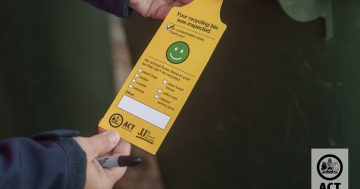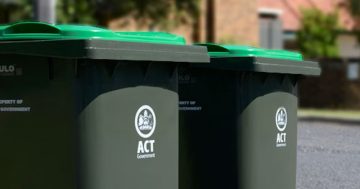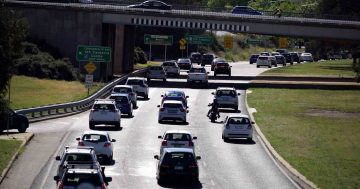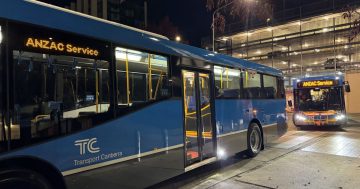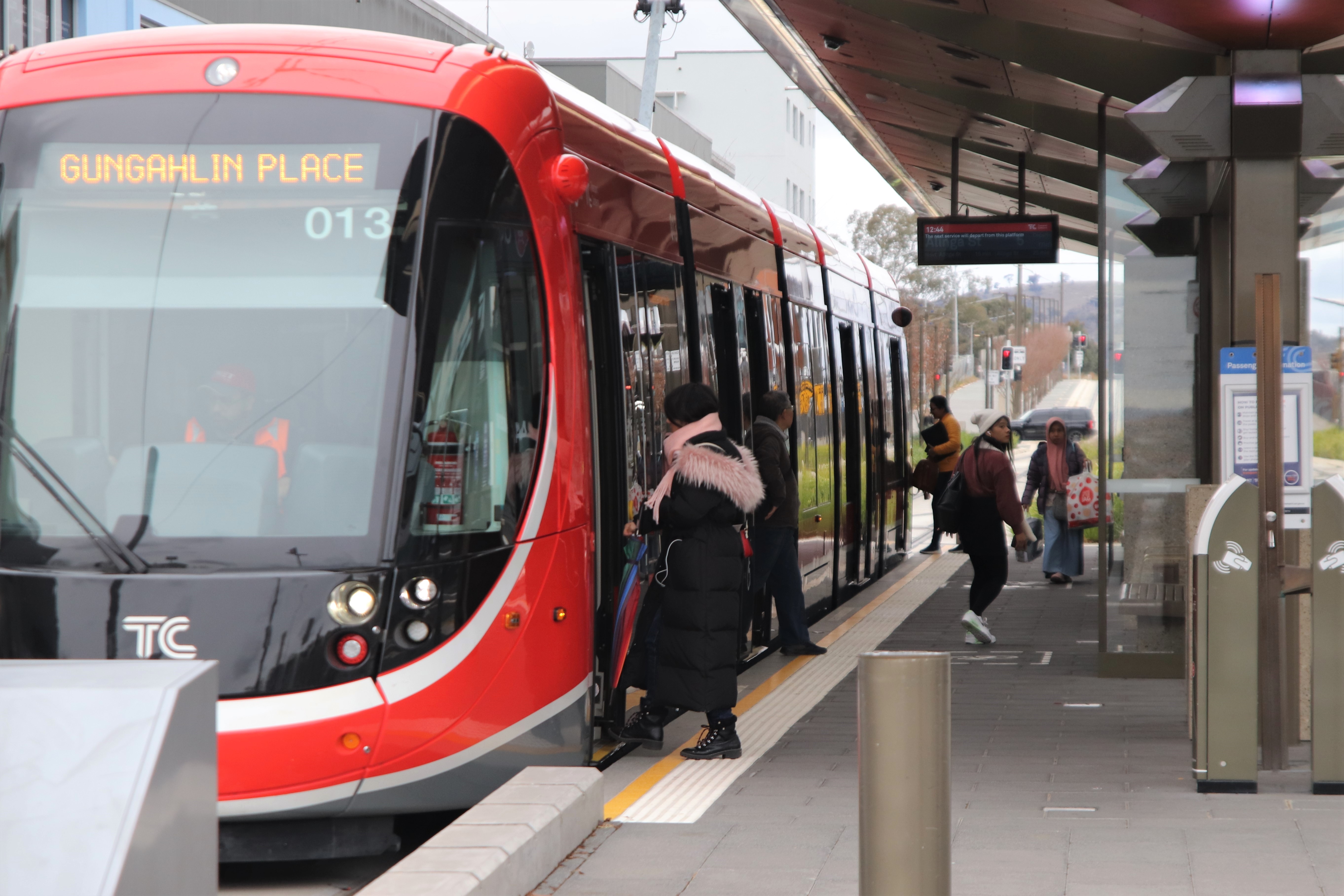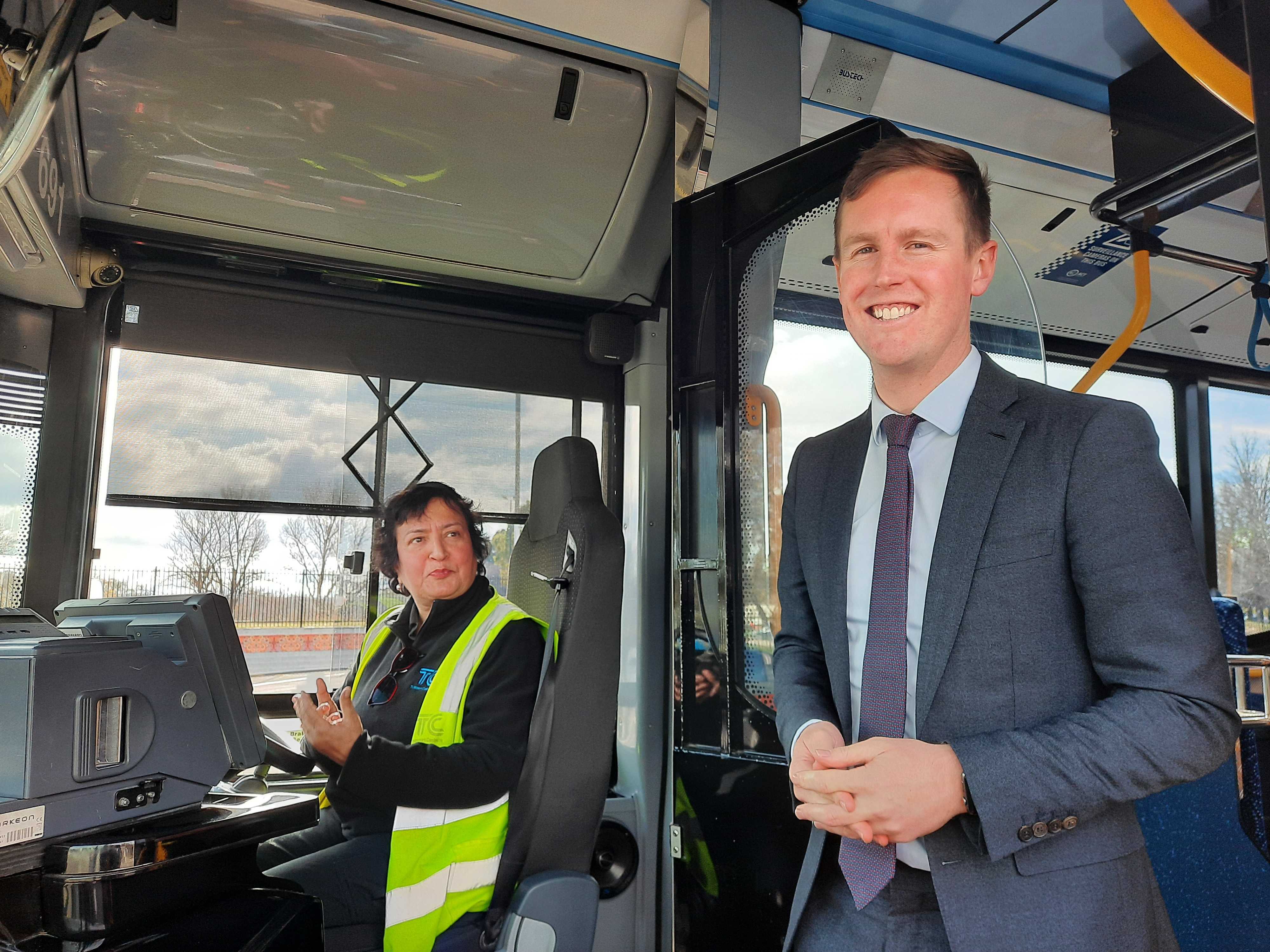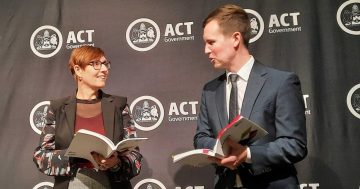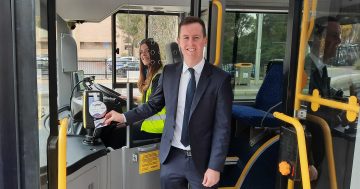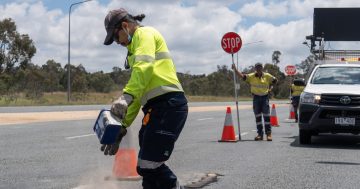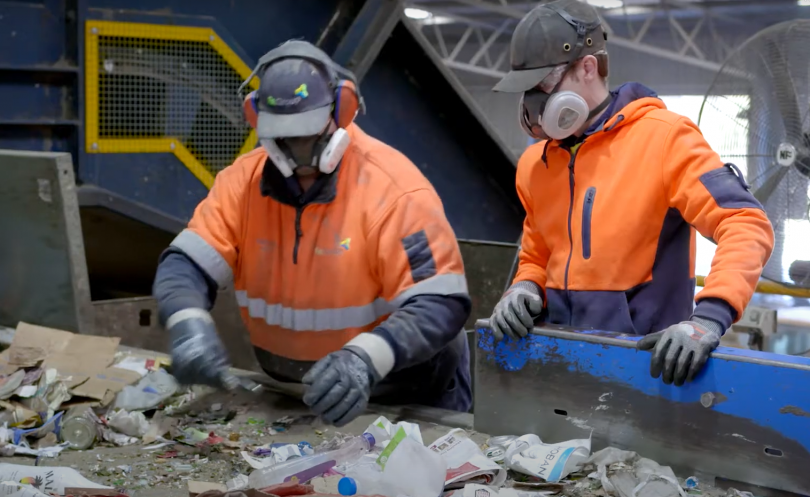
ACT Government employees sort through items at the Materials Recovery Facility in Hume. Photo: Screenshot from ACT Government’s Recycle Right video.
When a car engine made its way from a recycling bin to one of the ACT’s recycling centres for sorting, the ACT Government knew it had some overenthusiastic recyclers. Then there were corflutes. Lots of corflutes.
Now in the wake of World Recycling Day on 18 March, the ACT Government is stepping up its message for Canberrans to be more sustainable in their waste and recycling efforts with an education program on how to recycle right.
Statistics released from the latest survey of more than 600 Canberra residents show that 86 per cent said they wanted to take more action to reduce their waste and recycle more.
A further 72 per cent said they would consider buying items packaged in less single-use plastics.
The education team leader of the ACT Government’s ACT NoWaste program, Robbie Ladbrook, says the evolving nature of recycling makes it difficult to keep up with the latest information. However, all the latest updates, including an A-Z list of recyclables and handy tips, are on the government’s Recyclopaedia website.
“We have a lot of overenthusiastic recyclers in the ACT and we’ve even had objects such as car engine blocks and chainsaws [coming through],” Ms Ladbrook tells Region Media.
“We’ve also seen a tonne of corflutes during the first three months of the corflute recycling trial. These will be made into more corflutes so that is a fantastic example of the full circle of recycling.
She says people are well aware these things are recyclable, but don’t know the right avenues for which to do it.
“We’re clarifying what the household bin system is for, and that’s only household packaging,” says Ms Ladbrook. “But we also really want people to think beyond the bin.”
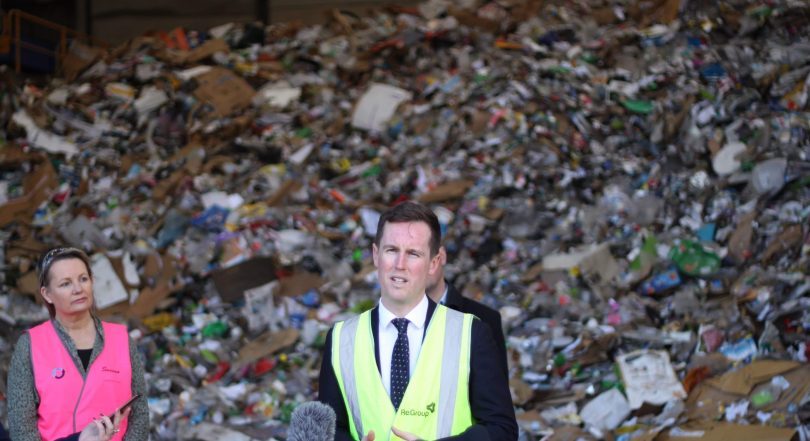
ACT Minister for Transport and City Services Chris Steel. Photo: File.
ACT Minister for Transport and City Services Chris Steel also said Canberrans are great recyclers who are very committed to making the ACT a more sustainable place to live.
“While 96 per cent of Canberrans believe they know all there is to know about recycling, we still get the recycling process wrong one in five times,” he said.
“This may not sound like much, but every contaminant found in our recycling materials can cause serious safety issues for staff and hinder the efficiency of our recycling processes.”
Minister Steel also said 74 per cent of people are willing to take more action to reduce their waste, and 89 per cent of Canberrans said they are aware of the ACT’s container deposit scheme.
The ACT will begin phasing out single-use plastics from July, while bulky waste is now being collected from every suburb. This initiative has seen more than 1800 pieces of furniture, 400 appliances and more than 250 pieces of outdoor equipment collected, most of which has been donated to charities such as GIVIT, which finds a home for these items.
The ACT Government is also in the process of developing a food and organic waste collection scheme for the ACT.
“All of these initiatives are helping Canberrans become better recyclers, helping our environment, reducing greenhouse gases and contributing to developing a stronger circular economy,” said Minister Steel.
Ms Ladbrook said the Recyclopaedia website has also been getting its fair share of traffic with more than 24,000 unique views in the past month.
Popular searches were for information on the bin collection calendar, while the top three searches were for polystyrene plastic, batteries, and lights and decorations after Christmas.
Ms Ladbrook said the ACT NoWaste program and the Recyclopaedia website are great resources that will continue to make Canberrans better recyclers.
“We know Canberrans are generally very environmentally conscious and they do it because they like living in a beautiful city and they really want to keep it that way,” she said.
The full results of ACT residents’ recycling actions will be released to the public in the coming weeks.
You can watch many videos about recycling right via the Recyclopaedia website, including the one below:
Original Article published by Michael Weaver on The RiotACT.



